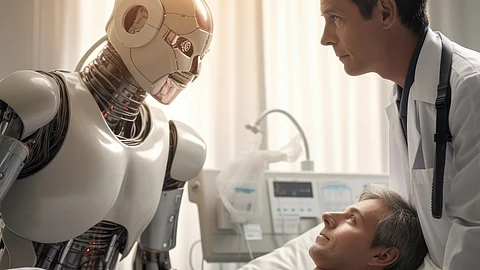In a major breakthrough, Saudi Arabia has introduced the world's first-ever clinic in which artificial intelligence is center stage to diagnose and treat patients. The pioneering initiative is a joint venture between Chinese medtech firm Synyi AI and Almoosa Health Group, underway in Al-Ahsa, Eastern Province.
The future of healthcare: What is an AI-powered clinic?
At the heart of this revolutionary clinic is "Dr. Hua," a virtual physician made possible by artificial intelligence who communicates with patients, reads symptoms, and writes prescriptions. Patients enter their ailments with a tablet, and Dr. Hua responds in much the same manner as a human doctor, asking additional questions, looking at images, and taking information with the help of clinic staff.
After an AI-powered consultation, the treatment as suggested is checked and sanctioned by a qualified medical doctor. This safety net ensures that life-critical decisions are in human hands, especially in emergency or complex cases.


